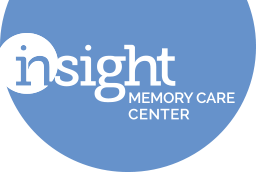
Back to Learning
Can Individuals Living with Dementia Learn New Things?
It is back-to-school season, bringing fresh goals and aspirations for students and adults alike. However, for many, a dementia diagnosis complicates a dream of lifelong learning. Many struggle to reconcile a dream of being a lifelong learner and achiever with a recent or not so recent dementia diagnosis. RAFT specialists work with individuals and their caregivers to optimize opportunities for success, helping people understand the cognitive domains that are impacted by specific degenerative diseases, and what is preemptively barred because of stigma.
Most people living with dementia can learn, and those that have trouble learning new skills can relearn a skill that had previously been acquired yet since forgotten.
Here are few techniques that can help:
Spaced Retrieval: Using a question-and-answer format, a speech pathologist works with individuals to remember information for progressively longer intervals. This method can help enhance retention of information and processes, including accessing voicemail, properly utilizing a mobility aid, and other everyday tasks.
Errorless Learning: Unlike trial-and-error learning, errorless learning prevents mistakes. This approach is effective for those with explicit memory deficits, including individuals with Alzheimer’s disease, since their ability to articulate and reflect on a past performance is impaired. By focusing on the brain’s implicit memory, or procedural memory, and eliminating any opportunities for failure, individuals are more likely to perform the task correctly in the future.
Visual Cues: With Alzheimer’s disease, visual and cognitive changes, make it difficult to encode cognitive maps of the environments. Bright, distinctive objects can help individuals with Alzheimer’s encode and retrieve information about their environment. These visual cues are most effective in key decision areas and can be combined with other techniques to improve wayfinding abilities.
These techniques may only be effective if the learner is in an environment conducive to learning. People with dementia may be sensitive to sensory overload and prefer quiet spaces. Reducing auditory and visual distractions, speaking clearly, using concrete language, and timing sessions according to the individual’s alertness can improve learning outcomes. If a task is too challenging, a person living with dementia may get flustered or frustrated. If that happens switch to an easier activity, one that will promote feelings of mastery. And no matter the outcome of each learning session, successful or not, take frequent breaks — you and your loved one deserve a few minutes of recess!
Author
The RAFT Dementia Support Program aims to give individuals living with dementia, their family, and their caregivers the information and tools to live with dignity, respect, and meaning. You can learn more at www.raftnorthernvirginia.org/Home or contact them at 703-531-2144 or raftdementia@arlingtonva.us
Blog
"I like that IMCC focuses on dementia-related problems and provides a focal point for families to network and socially interact in coping with dementia. It provides a community that helps us in our struggle."




